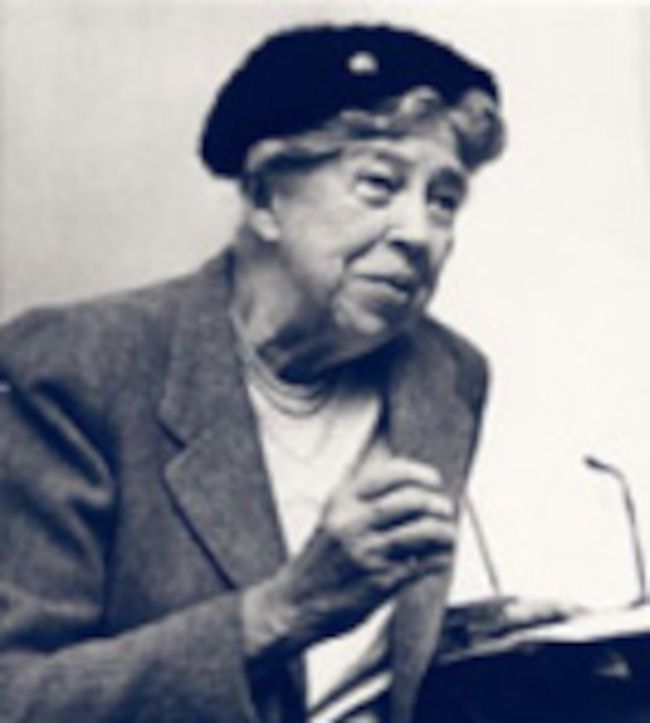APRIL 26, 1941
LOS ANGELES, Friday— - On arriving at the station in Los Angeles yesterday, we found a taxi awaiting us right next to the train and, therefore, left in record time. About five minutes after we reached the hotel, Mrs. Maurice Benjamin and my new daughter-in-law arrived breathless, having waited at the entrance of the station only to be told, after everyone had left the train, that we had departed another way.
The four of us sat down to a very light lunch and then went off to keep some engagement. While we tidied up after the long train trip, Miss Thompson sorted out some of the mail which reached us here. When I am
away, I find that letters from family or friends mean a great deal and I grasp them very hurriedly and read them over and over again, thinking that in some way they bring people nearer.
I found a message saying that Washington was calling me on the telephone and my heart sank. But in a few minutes my husband's calm and reassuring voice announced that he was just calling me to have a little conversation.
I read another little book on the way, in which I think many people will be interested. It is called: "Let No Wave Engulf Us," and is written by Mr. Frank Altschul, who is a well known New York banker. The last paragraph fairly epitomizes his feeling:
"Once this nightmare of tyrannies has been definitely banished, great creative forces will again be unleashed. The world is ten years behind schedule. It is eager to make up for lost time, men and women everywhere look to us to provide this opportunity. If the spirit of America is still responsive to our great traditions, it is inconceivable that we should disappoint them."
He faces certain facts that are not pleasant to some of our more privileged friends and he makes some definite suggestions which make this book a helpful contribution.
At 6:30, Mr. and Mrs. Archibald Young called for Miss Thompson, Mrs. James Roosevelt and me, and we drove to Claremont for the evening lecture. After the lecture, we went to President and Mrs. Story's house for a short reception and reached the Ambassador Hotel again by midnight.
During the question period, lasting several minutes, a few people asked about the Negro situation here. Mrs. Jerome McNair told me afterwards, that their position here has been extremely difficult. A campaign is on now to try to raise money for a new YWCA building, which will be a suitable housing and social center for the Negro girls and women in Los Angeles. This seems to be an excellent project, but the real difficulty here seems to be a feeling on the part of the Negro people that they are discriminated against in obtaining employment in defense industries.
This morning I paid my usual visit to Olvera Street and enjoyed the friendly, smiling faces and picking up a few things to send to friends.




